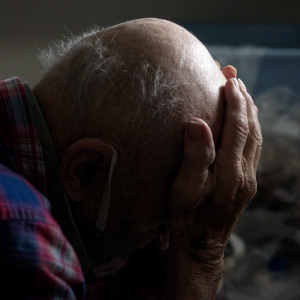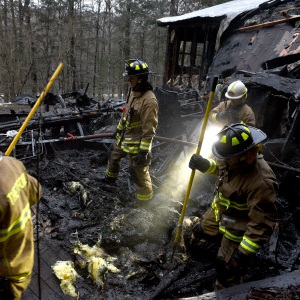Trump and HHS claw back $80 million in federal public health funding from New Hampshire
| Published: 04-01-2025 9:00 AM |
The federal government, under President Donald Trump, announced Tuesday it was revoking $11.4 billion of unspent, leftover, post-pandemic COVID-19 relief funding from state and local governments, $80 million of which is coming from New Hampshire.
“The COVID-19 pandemic is over, and HHS will no longer waste billions of taxpayer dollars responding to a non-existent pandemic that Americans moved on from years ago,” Andrew Nixon, the U.S. Department of Health and Human Services’ director of communications, said in a statement. “HHS is prioritizing funding projects that will deliver on President Trump’s mandate to address our chronic disease epidemic and Make America Healthy Again.”
Gov. Kelly Ayotte told WMUR and others Wednesday that she’s asked the Trump administration to reconsider the decision but was told it is irreversible. State officials believed they would have until the end of 2026 to spend the funding.
“As I understand it, at the federal level, they’re just saying these were pandemic funds and they were only meant to be temporary,” Ayotte, a Republican, said. “And the pandemic’s concluded and we’re gonna claw them back.”
This worsens what was already an extremely difficult budget year for New Hampshire. The state has dealt with years of lagging business tax revenues, is set to be forced to pay hundreds of millions of dollars in settlement money to victims of a yearslong child abuse scandal in its juvenile detention centers, and was already running out of pandemic-era federal funding. Amid these challenges, Ayotte unveiled her $16 billion two-year budget proposal in February. Since then, legislators have been proposing further cuts to that proposal after the House Ways and Means Committee decided her revenue projections were too optimistic by hundreds of millions of dollars.
This week’s cut from the federal government creates a new hole in the state budget that lawmakers will have to figure out how to address. Ayotte said she disagrees with the federal government’s decision to revoke this funding so abruptly.
“Of course I think it is much easier for states if resources have been appropriated for a period that at least we fulfill that period,” Ayotte said.
On Friday, U.S. Sen. Maggie Hassan met with leaders of community organizations from across the state in Tilton, N.H., at Archways Community Resource Center to discuss how this will affect their programming, which also relies on the funding that was cut.
Article continues after...
Yesterday's Most Read Articles
 After a year of looking, White River Junction couple finds new home
After a year of looking, White River Junction couple finds new home
 NH Republicans move forward with three different plans to expand EFAs
NH Republicans move forward with three different plans to expand EFAs
 Fires destroy two Upper Valley homes
Fires destroy two Upper Valley homes
“This is about the administration taking away critical things from the American people who need them to give more tax cuts for billionaires who are already billionaires,” Hassan, a Democrat, said.
Archways, as well as several other organizations at the event Friday, were using the federal funding that was revoked to provide a number of services, including those aimed at treating substance use disorder as well as helping people get the Medicaid and SNAP benefits they qualify for.
“These are not just nice things you do for the community,” Michelle Lennon, president and CEO of Archways, said. “There’s evidence that it saves money and it saves lives.”
Lennon said a lot of people don’t realize how difficult it is for those who need welfare services to obtain those services. Her organization relies heavily on federal funding to help people receive their services.
“The assumption is that the resources are readily available, and I can tell you, 99% of the time, they are not,” Lennon said. “The assumption is that, ‘Oh, you can go to town welfare when you’re in trouble and you’re good.’ And it doesn’t work that way. It is so complicated. Rejections come fast and furious, sometimes to the point where we have to engage with legal aid to get people the help they are entitled to as American citizens.”
Among the specific programs being cut is the Health Disparities Grant, which funds employees at Archways who help impoverished people navigate the state’s health care system.
“We have to train our workers in terms of navigating that (system),” Mark Watman, vice president and COO of Archways, said. “These are people who are trained, and it’s still difficult. To have individuals out there trying to navigate this on their own, this is going to be disastrous.”
Watman said the programs that have been supported by this funding “help families survive.”
“The lack of these resources is going to have very practical implications on the health and survivability of New Hampshire families,” he said.
Several leaders of community organizations present Friday said these cuts will devastate their operations at the same time that need in their communities is rising.
“Now that they’ve done this, it’s like, ‘Oh my god, they can do anything to just wreck us overnight,’” Joelyn Drennan, assistant vice president of impact at Granite United Way, said. “And that is super concerning to me, because we are seeing the needs rise, and we’re having such a hard time keeping up with the capacity now.”
“It is one thing to plan for budget cuts in future budgets,” Hassan said. “We go through that at the state level, at the local level, at the federal level all the time. … This is different. This is the administration cutting already committed funds, laying off people in the middle of a budget, doing things that really are going to harm the people of this state and make our communities less able, less resilient to deal with the challenges that they’re facing.”
Hassan said she’s fighting back by spotlighting the importance of the services being cut in New Hampshire, and she’s trying to persuade her Republican colleagues to help the Democrats oppose these actions.
She pointed out that they’d need only four Republicans in the Senate and a few more in the House to overcome the GOP majority. She wouldn’t say whether the onus is on Ayotte as a Republican to appeal to the Trump administration to stop this funding cut.
“This clawback of money, this taking away of money that was already promised to New Hampshire and that New Hampshire has already planned to use, will really harm families, people in mental health crisis, people with chronic illness, young children whose disabilities are just being identified and need that bit of extra help so that they won’t need special education later on,” she said. “Those are all services at risk.”






 Hartford Selectboard mulls closing road off Sykes Mountain Ave
Hartford Selectboard mulls closing road off Sykes Mountain Ave Chris Pappas announces bid to succeed Shaheen in US Senate
Chris Pappas announces bid to succeed Shaheen in US Senate Dartmouth Health creates inpatient psychiatric ward for teenagers
Dartmouth Health creates inpatient psychiatric ward for teenagers
